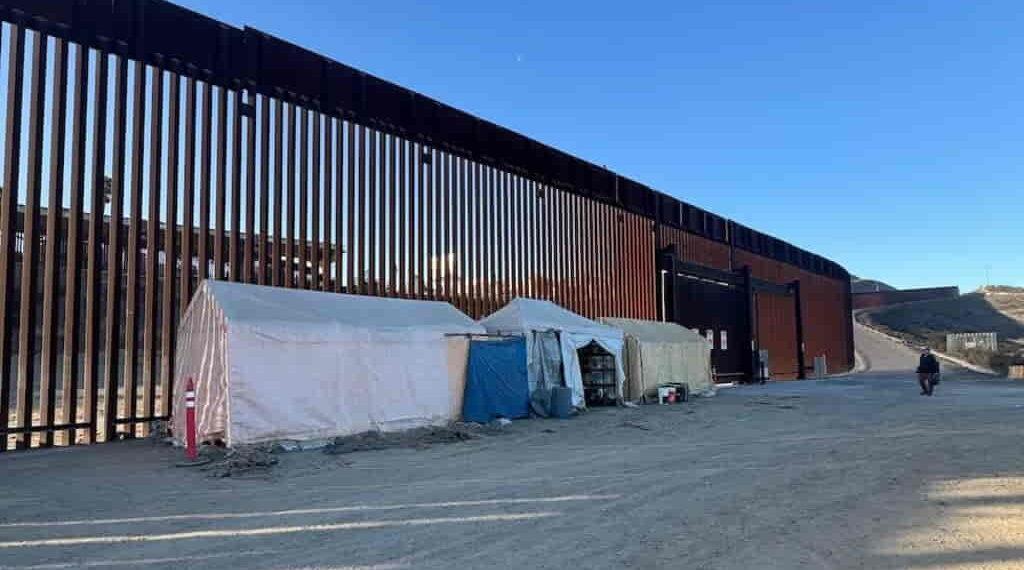‘No Choice but to Go Back’: Migrants Struggle Under Trump’s Border Policies
Shivering in the cold, Marcos pulls his hoodie tight over his head—partly to keep warm, partly to hide his identity. At just 16 years old, Marcos (not his real name) fled his home state of Michoacán, Mexico, after being forcibly recruited into a drug cartel.
His story is one of survival. One evening, while on a routine pharmacy trip for his mother, armed men surrounded him, forcing him into a truck with a chilling ultimatum: “Get in, or we’ll kill your family.” For months, Marcos was held captive and forced into gang activities before escaping with the help of a sympathetic cartel member.
Now, Marcos is in a migrant shelter in Tijuana, waiting for a chance to plead his case for asylum before U.S. authorities. He believes he can prove he faces “credible fear” of persecution if he returns to Mexico. However, recent sweeping immigration policies by President Donald Trump have shattered his hopes.
Trump’s Executive Orders on Immigration
On his first day back in office, President Trump signed a series of executive orders aimed at curbing illegal immigration and tightening asylum procedures. Among the most controversial measures were plans to declare drug cartels as terrorist organizations, paving the way for military action and mass deportations.
From the Oval Office, Trump framed the orders as part of his campaign promise to overhaul border security and address what he sees as systemic abuse of the asylum process.
Pastor Albert Rivera, who runs a shelter for migrants fleeing cartel violence, sees a contradiction in the policy. “If you classify cartels as terrorists, it strengthens these people’s asylum claims,” he says, pointing to the dangers migrants face in their home countries.
Swift Consequences for Asylum Seekers
The impact of Trump’s orders was immediate. At the Chaparral crossing in Tijuana, roughly 60 migrants had gathered to present their asylum cases to U.S. border officials. Instead of hearings, they were directed by Mexican authorities to buses returning them to shelters.
Complicating matters, the CBP One app—a digital platform launched by the Biden administration to process asylum claims—was abruptly shut down. The app had been the sole pathway for migrants to request asylum legally. Its suspension left many in despair.
Oralia, a mother of two, has spent seven months living in a nylon tent near the border. Fleeing cartel threats in Michoacán and seeking medical help for her epileptic 10-year-old son, Oralia’s hopes rested on the CBP One app. Now, with the app offline and no alternative options, she has little faith that her case will ever be heard.
“We have no choice but to go back and trust in God that nothing happens,” Oralia says tearfully, her tent packed and ready for the next family in need.
A Divide Across the Border
For many in southern California, Trump’s policies are seen as a necessary step to protect American resources. Paula Whitsell, chairwoman of the San Diego County Republican Party, supports the measures, arguing that the region cannot sustain the influx of migrants.
“This is about removing undocumented criminals and dismantling people-smuggling networks,” she says. “It’s not anti-immigrant. We’re still a nation of immigrants.”
However, critics argue that the new restrictions fail to distinguish between criminal elements and vulnerable individuals with legitimate asylum claims. The blanket policies, they say, leave families like Marcos’ and Oralia’s in limbo or force them back into dangerous circumstances.
Despair at the Border
For asylum seekers, the situation grows increasingly dire. The once-busy shelters in Tijuana are now filled with stories of dashed hopes and impossible choices.
Marcos, still holding onto a sliver of hope, pleads for compassion. “I hope they look at each case and see the circumstances,” he says. “I hope Mr. Trump’s heart softens for those who truly need help.”
For others, like Oralia, the decision is already made. “It’s all been so unjust,” she laments. “I just hope God moves him [Trump], because there are lots of families like ours.”
As Trump’s border policies take shape, the lives of thousands of migrants hang in the balance, caught between the hope for safety and the despair of rejection.
This article was rewritten by JournosNews.com based on verified reporting from trusted sources. The content has been independently reviewed, fact-checked, and edited for accuracy, neutrality, tone, and global readability in accordance with Google News and AdSense standards.
All opinions, quotes, or statements from contributors, experts, or sourced organizations do not necessarily reflect the views of JournosNews.com. JournosNews.com maintains full editorial independence from any external funders, sponsors, or organizations.
Stay informed with JournosNews.com — your trusted source for verified global reporting and in-depth analysis. Follow us on Google News, BlueSky, and X for real-time updates.














